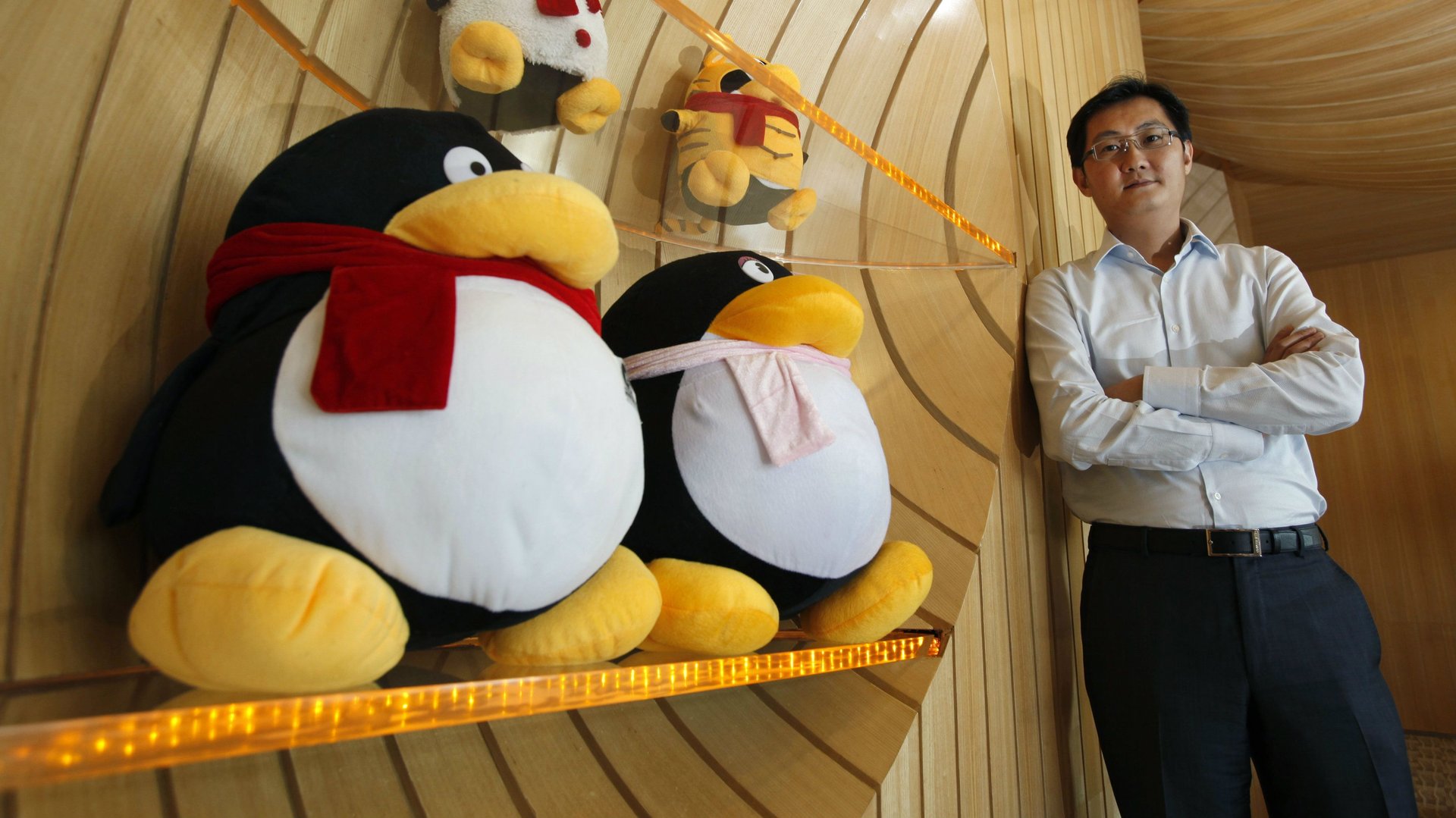Tencent created QQ Coin long before Facebook’s Libra
After Facebook announced last month it would create Libra, its own cryptocurrency, regulators responded with breathless concerns. Expected to launch in 2020 and backed by real assets (cash and short-term government bonds), Libra could fundamentally change the economic system, but also may wreak havoc on smaller economies, threatening to shake global financial stability as populations rapidly abandon their local currencies.


After Facebook announced last month it would create Libra, its own cryptocurrency, regulators responded with breathless concerns. Expected to launch in 2020 and backed by real assets (cash and short-term government bonds), Libra could fundamentally change the economic system, but also may wreak havoc on smaller economies, threatening to shake global financial stability as populations rapidly abandon their local currencies.
Facebook’s plans for Libra are monumental, but the basic premise of digital money remains the same as it was decades ago. Indeed, the company’s push into cryptocurrency—and e-commerce—is hardly unique. It’s even fair to say the social media giant is late to the party.
Tencent, a Chinese conglomerate which operates WeChat (1 billion daily users) and an instant-messaging service called QQ (820 million monthly active users), launched its own virtual money, QQ Coin, back in 2005. QQ Coins cost 1 yuan ($0.15) each, and they were initially designed to pay for online services and games in the Tencent ecosystem. Once bought, QQ Coins are non-refundable—at least through the company, which instead recommends spending them on ephemera like changing the appearance of their Tencent Avatars.
But shortly after Tencent launched its virtual money, QQ Coin escaped its control. In 2006, a year after the digital unit launched, “online game sites beyond Tencent started accepting QQ Coins as payment. The coins appeal as a safer, more practical way to conduct small online purchases, because credit cards aren’t yet commonplace in China,” the Wall Street Journal reported. QQ Coins also became popular on gambling and adult entertainment websites. For context, bitcoin wasn’t released until 2009.
Then, in January of 2007, China’s central bank declared a crackdown on QQ Coins, fearing they might facilitate money laundering. But the more the government tried to rein in QQ Coins, the higher their price grew, at one point rising 70% within weeks. Taobao—China’s version of eBay—decided to allow trading in the virtual currency that April, despite the government’s anxieties and a lawsuit by Tencent for selling QQ coins. By 2009, the People’s Bank of China ordered that virtual currencies could only be used to buy virtual goods (not physical ones) and it outlawed redemptions of QQ Coins for above their purchase price.
QQ Coins are still available today, and they comprise an integral, though difficult to measure, portion of China’s underground economy. “[Their] story illustrates a key challenge with virtual economies,” explained Vili Lehdonvirta, a professor at the Oxford Internet Institute, and Edward Castronova, a professor of media at Indiana University, Bloomington. “Forces arising from the participants’ economic interests and expediencies can lead systems on trajectories that differ significantly from what their designers originally intended,” the professors noted in their book Virtual Economies: Design and Analysis. In other words, digital money may have unintended consequences.
While China’s Ministry of Commerce could have clamped down on QQ Coin by revoking Tencent’s license, the multinational, multi-currency setup for Libra could lead to an even more complicated regulatory future. Like QQ Coin, if Facebook’s cryptocurrency succeeds, it won’t be used exclusively on the social media site. In fact, other companies are being encouraged to create wallet services, exchanges, games, and entirely new platforms for Libra users. So, once the cryptocurrency genie is out in the world, it could be even more difficult to put back in the bottle.
Libra, of course, is different from QQ Coin, most notably because 1) it will be redeemable and 2) it uses a blockchain—a distributed computing system. (That second feature is what makes Libra a “crypto” currency.) To date, Tencent hasn’t seen a purpose/value to the blockchain setup, but the ramifications of QQ Coin and Libra could ultimately be very similar, if not the same.
In a private post on WeChat, reported by Chinese media, Tencent CEO Pony Ma offered his assessment of Libra: “The technology is already mature, it’s really not difficult,” he wrote. “It depends more on whether the regulations allow it.” As regulators review Facebook’s crypto, they would be smart to examine how Tencent’s QQ Coin has become an intrinsic part of China’s economy.
🔑🔑🔑
BITS AND PIECES
- Libra suggests a future where we use stocks/securities as money (CoinDesk)
- The US SEC added a new commissioner, Democrat Allison Herren Lee (sec.gov)
- US mayors refuse to pay bitcoin ransoms (WSJ)
- The Federal Reserve created a working group to study Facebook’s crypto (Politico)
- Fed chair Jerome Powell expressed concerns about Libra’s impact on financial stability, privacy, consumer protection, and money laundering (C-SPAN)
- Facebook won’t launch Calibra, its wallet service, in India due to government skepticism (Bloomberg)
- Investors in TRON protested at an office in mainland China after getting caught up in scam, Wave Field Super Community (The Block)
Please send news, tips, and QQ penguins to [email protected]. Today’s Private Key was written by Matthew De Silva, and edited by Oliver Staley. Truth uttered before its time is always dangerous.